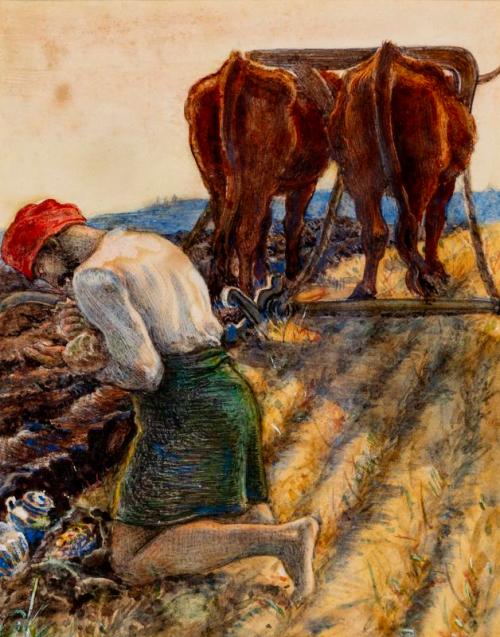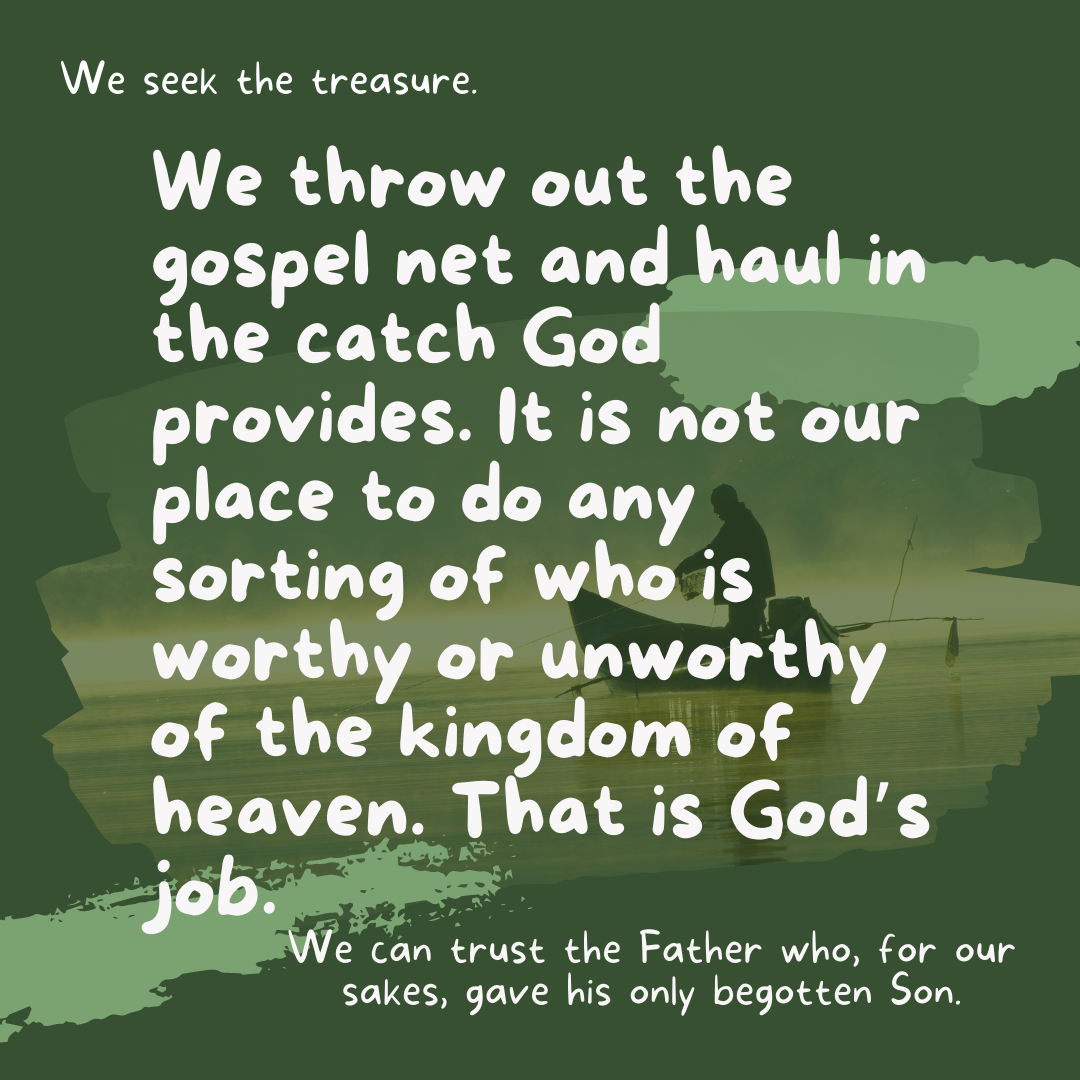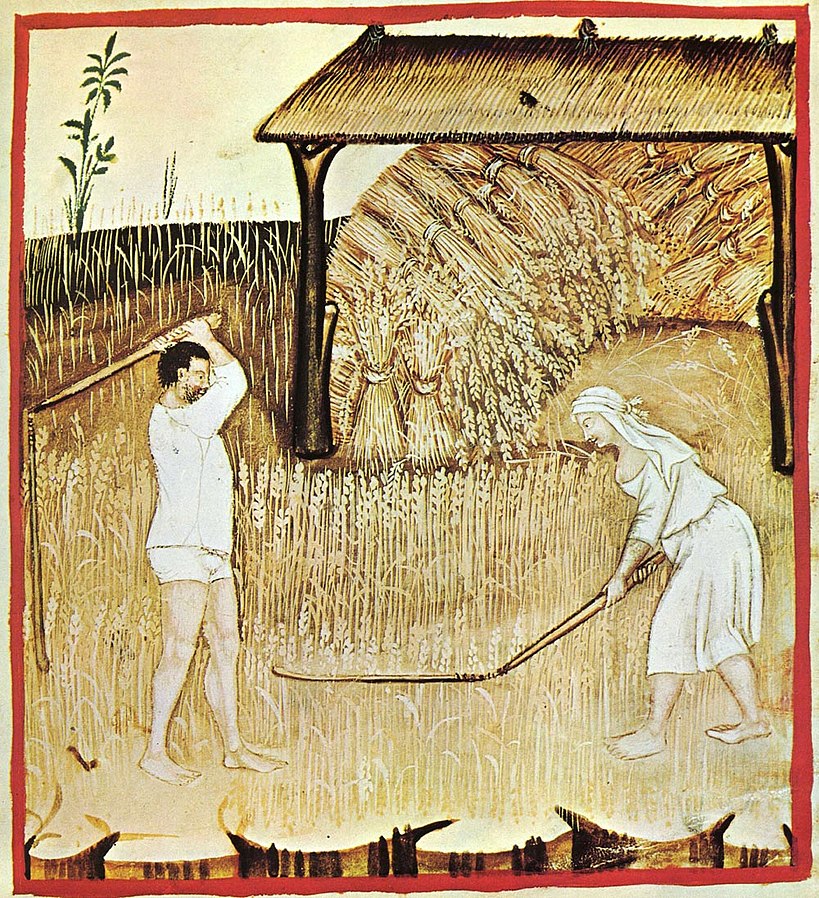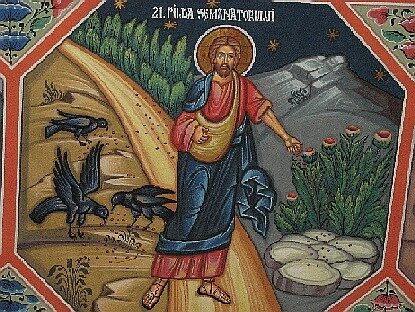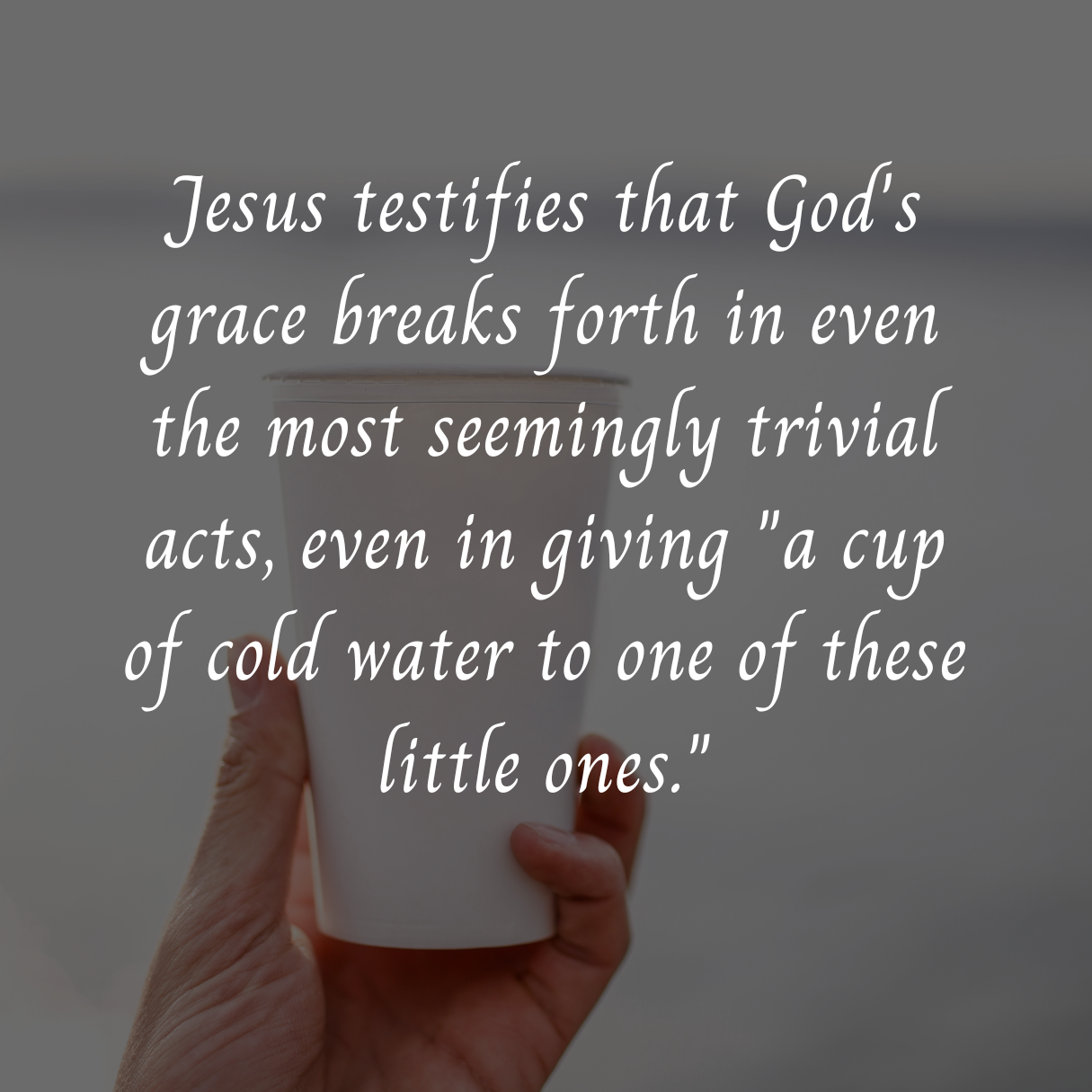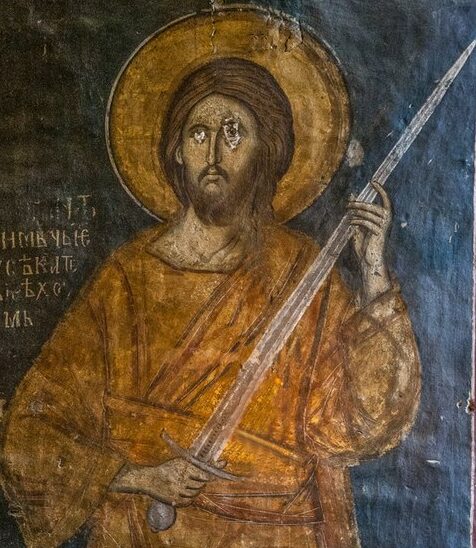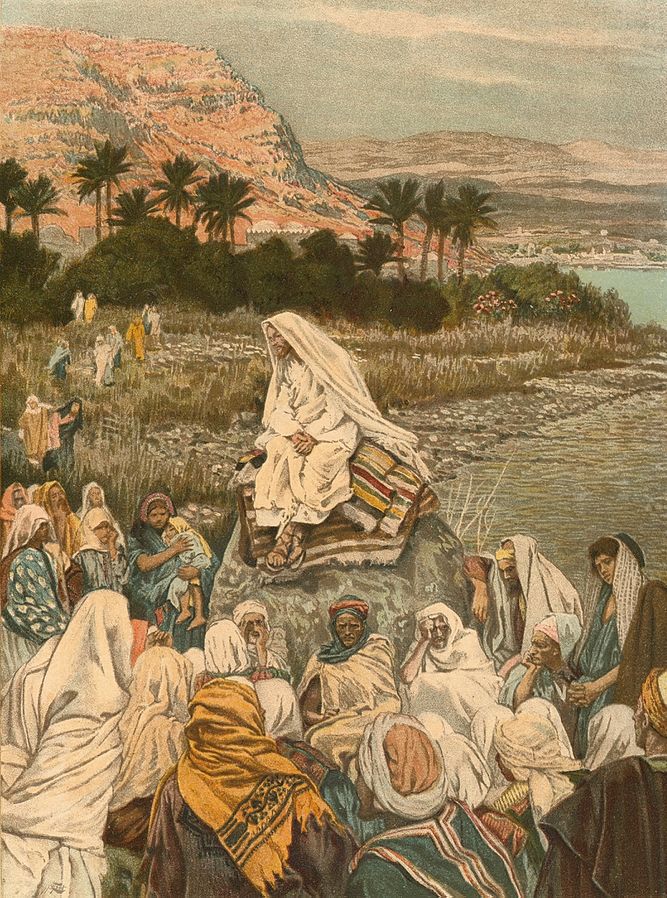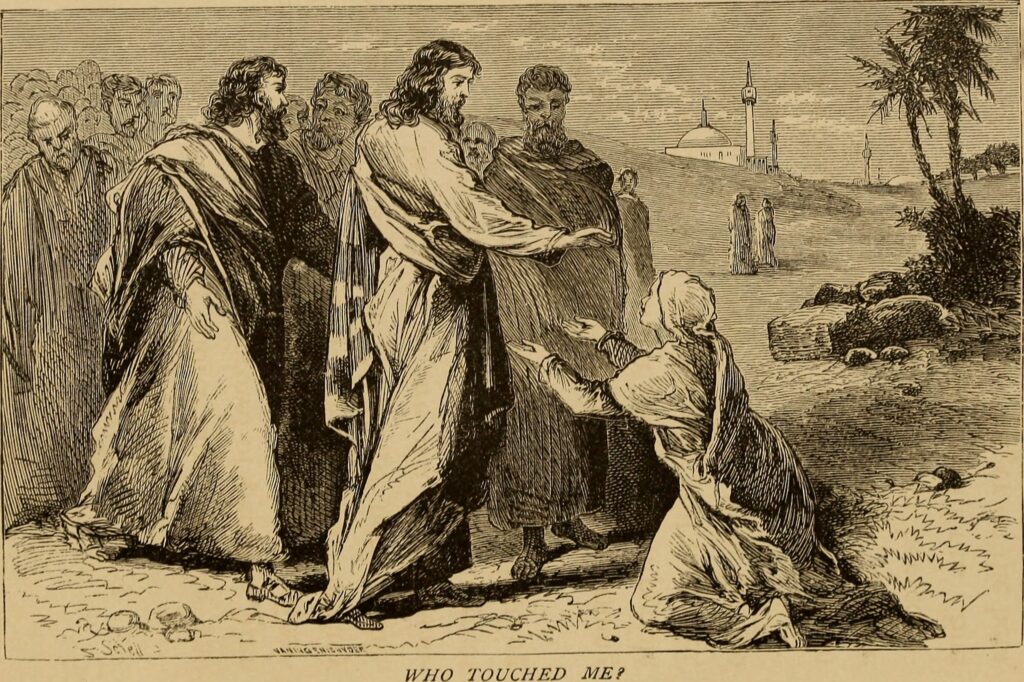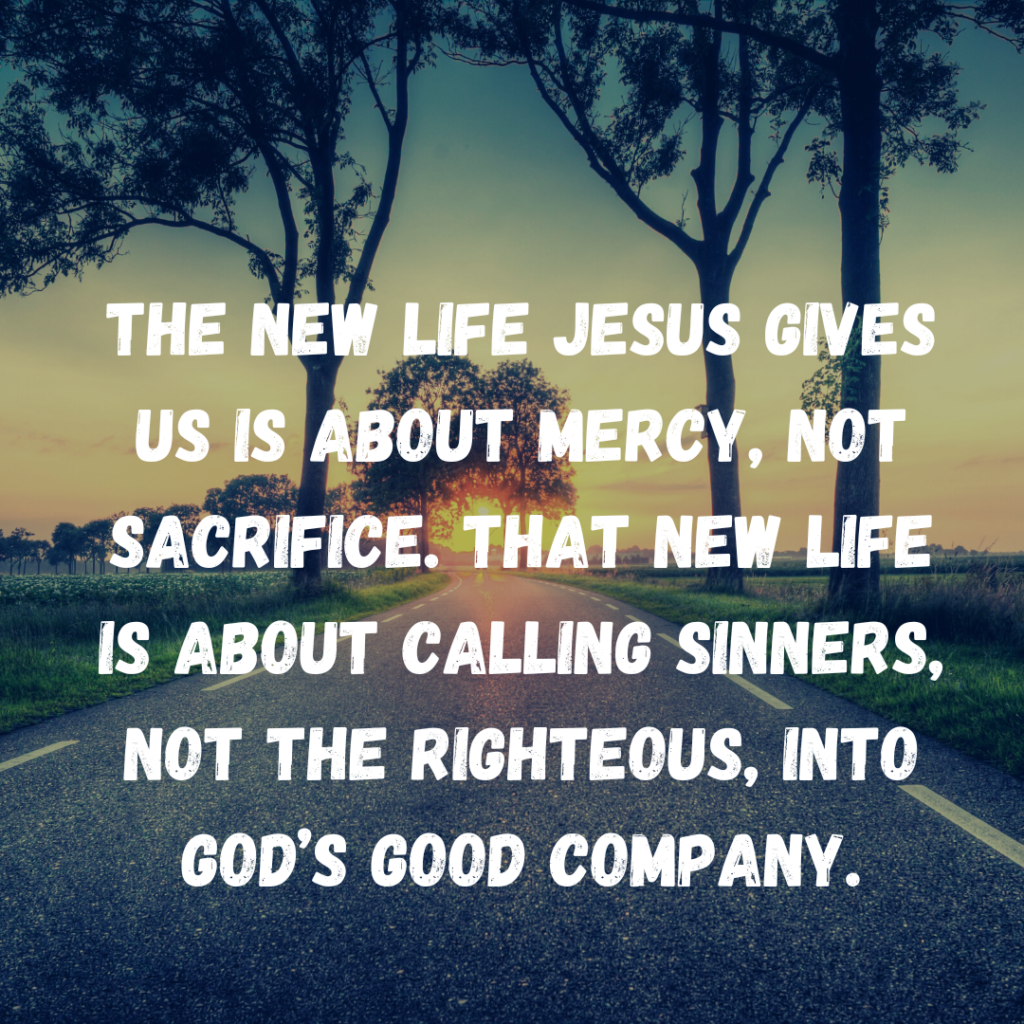Tenth Sunday after Pentecost
Divine Administration
Matthew 14:13-21
Tenth Sunday after Pentecost, 2023
Analysis by Chris Repp
13Now when Jesus heard [about the beheading of John the Baptist], he withdrew from there in a boat to a deserted place by himself. But when the crowds heard it, they followed him on foot from the towns. 14When he went ashore, he saw a great crowd; and he had compassion for them and cured their sick. 15When it was evening, the disciples came to him and said, “This is a deserted place, and the hour is now late; send the crowds away so that they may go into the villages and buy food for themselves.” 16Jesus said to them, “They need not go away; you give them something to eat.” 17They replied, “We have nothing here but five loaves and two fish.” 18And he said, “Bring them here to me.” 19Then he ordered the crowds to sit down on the grass. Taking the five loaves and the two fish, he looked up to heaven, and blessed and broke the loaves, and gave them to the disciples, and the disciples gave them to the crowds. 20And all ate and were filled; and they took up what was left over of the broken pieces, twelve baskets full. 21And those who ate were about five thousand men, besides women and children.
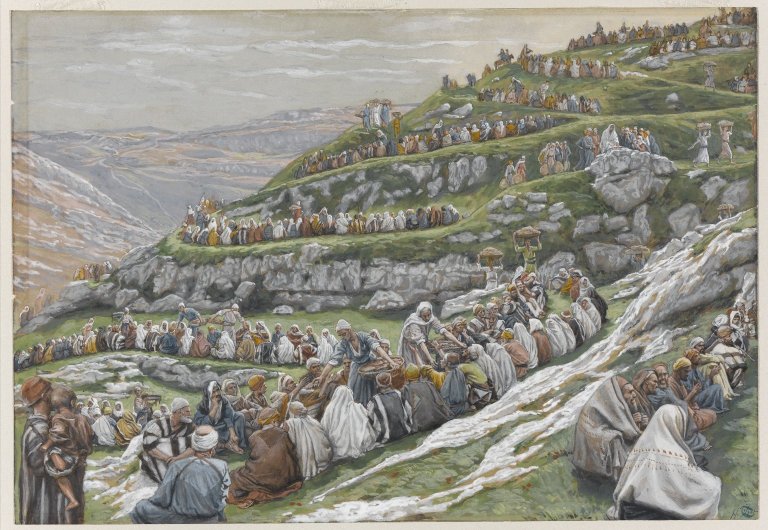
The Miracle of the Loaves and Fishes – James Tissot (1836–1902) – From Wikimedia Commons
Herod was right in thinking that in Jesus John was back; Herod’s ability to employ the ultimate tool of the secular administration (death) would not be the end of John, or of Jesus, or of the encroaching, persistent Administration they were so insistent on putting an end to.
DIAGNOSIS: Desolation
Step 1: Initial Diagnosis (External Problem): “Send them away.”
The deserted place to which Jesus withdraws is not unlike the wilderness of Matthew 3 and 4 in which John the Baptist proclaimed the coming Divine Administration (Kingdom of Heaven) and where Jesus was tempted to renounce his mission. It is a place of desolation and abandonment, echoing the condition of the crowd that follows him. The disciples know that there is nothing there for these poor folks. They know that the crowd needs to be sent back into the world of secular administration, where food can at least be bought.
Step 2: Advanced Diagnosis (Internal Problem): “We’ve got nothing.”
“Don’t send them away,” says Jesus, “feed them.” It’s as if he’s in a different world. Doesn’t he know that they cannot possibly feed so many people? Doesn’t he realize that they have nothing to give them –those thousand-some people? This is a desert, not a banquet hall. They have five loaves and two fish, which will make only a paltry supper for the twelve of them, plus one. And neither can they buy the crowd food with the few coins they have among them.
Step 3: Final Diagnosis (Eternal Problem): “Off with his head!”
The disciple’s attitude toward the crowds is in line with Herod’s attitude to the Divine Administration promoted by John and Jesus. The crowds are a burden that the disciples would like to be rid of, as John was to Herod’s ability to do whatever he wanted. They have forgotten what Jesus told them back on the mountain (see Matthew 5:1ff.): It is these poor folks that the Divine Administration is for. It is to them that it belongs. The disciples don’t trust Jesus’ words; they have unwittingly made themselves accomplices with the likes of Herod and those who will crucify Jesus. They trust the secular administration, the way things have always worked, and so have made themselves Jesus’ opponents. As do we all.
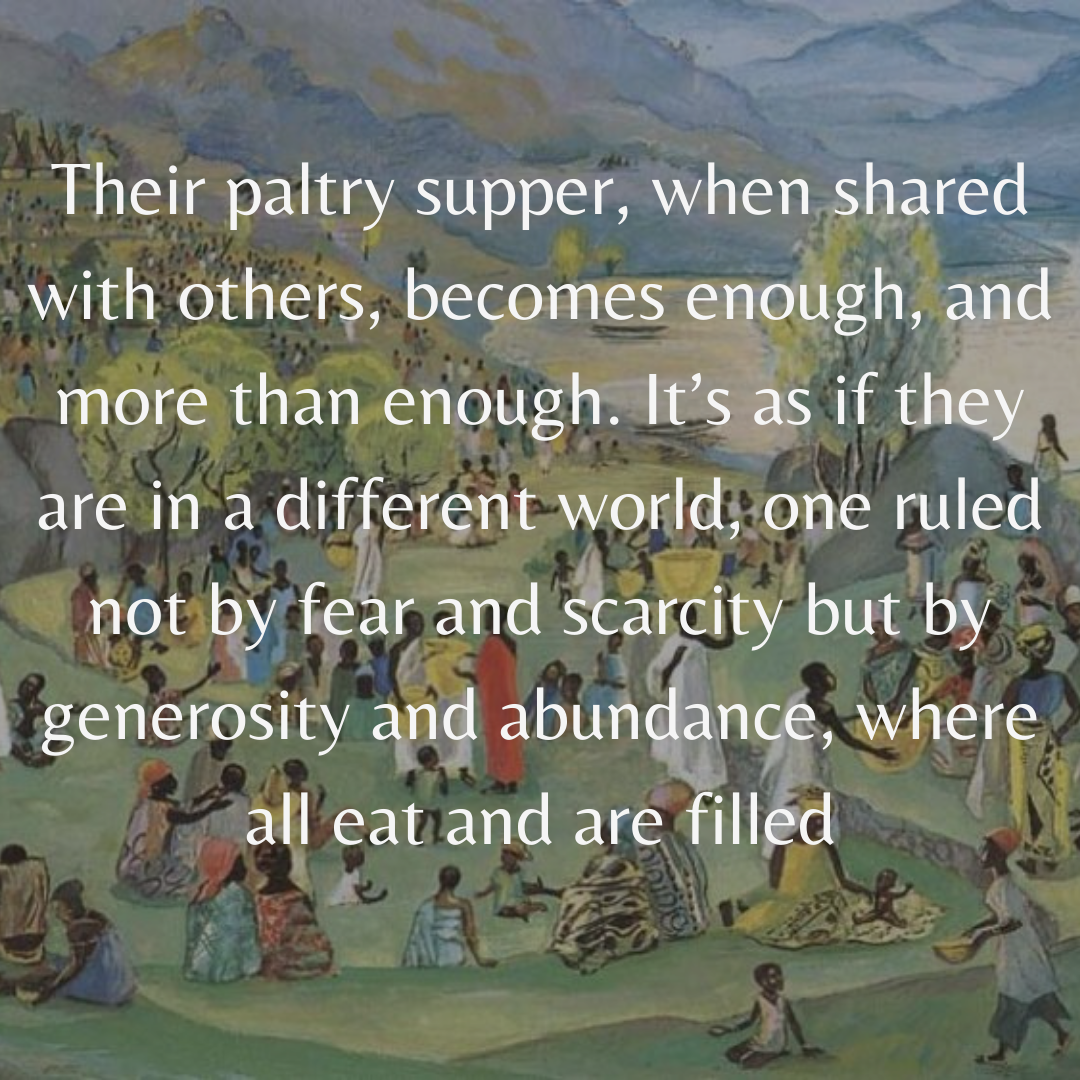
Vie de Jesus Mafa was an initiative undertaken in the 1970s to help teach the gospel in Northern Cameroon. This image is archived here: http://diglib.library.vanderbilt.edu/act-imagelink.pl?RC=48287
PROGNOSIS: Abundance
Step 4: Initial Prognosis (Eternal Solution): Okay, Let’s Go There
Jesus will endure the brutality of all resistance to the Divine Administration, just as John the Baptist did. That’s surely what he was going off to pray about before he was interrupted by the pursuing crowds. (See verse 23 after our reading ends). But Herod was right in thinking that in Jesus John was back; Herod’s ability to employ the ultimate tool of the secular administration (death) would not be the end of John, or of Jesus, or of the encroaching, persistent Administration they were so insistent on putting an end to.
Step 5: Advanced Prognosis (Internal Solution): What We Have Is Blessed
As a sign and foretaste of this death-defying, life-bringing reality, Jesus blesses what little the disciples do have for the sake of others. Once again, they are invited to share it with the teeming multitudes, and now, propelled by Jesus’ blessing, they comply.
Step 6: Final Prognosis (External Solution): Come and Get It!
And just like that there is a banquet in the desert. Their paltry supper, when shared with others, becomes enough, and more than enough. It’s as if they are in a different world, one ruled not by fear and scarcity but by generosity and abundance, where all eat and are filled. The Divine Administration has gotten a foothold in the most unlikely of places and circumstances. The disciples are amazed and encouraged, and they will follow Jesus to the cross and beyond, to the open tomb where life defies death and compassion conquers hostility and indifference.
